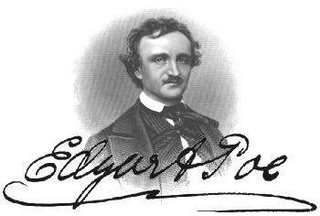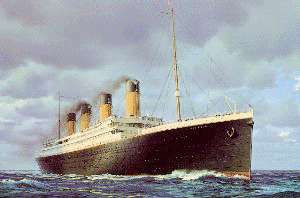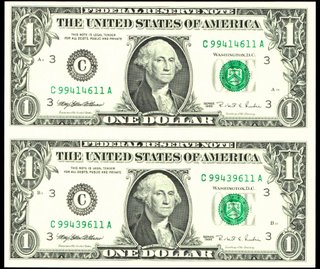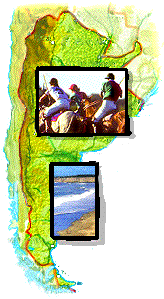The letter N
 The letter "ñ" or "N" almost exclusive patrimony of the English language (English), apparently made its appearance in the Middle Ages, coinciding with the birth of the languages \u200b\u200bderived from Latin (Romance languages). In many churches inscriptions and manuscripts of the period, the double n (nn) of many words is replaced by the new letter. Thus the word Hispannia led to the word Spain we know today. In the computer world, sometimes when do not have the character of this letter is sustitiye by "ni", "ny" or "nn". Maybe going back to its origins, the latter would be more correct.
The letter "ñ" or "N" almost exclusive patrimony of the English language (English), apparently made its appearance in the Middle Ages, coinciding with the birth of the languages \u200b\u200bderived from Latin (Romance languages). In many churches inscriptions and manuscripts of the period, the double n (nn) of many words is replaced by the new letter. Thus the word Hispannia led to the word Spain we know today. In the computer world, sometimes when do not have the character of this letter is sustitiye by "ni", "ny" or "nn". Maybe going back to its origins, the latter would be more correct. EXACTLY THE
 is said that in 1831, when the American writer Edgar Allan Poe was in the military academy at West Point, the instructions for the parade asked dress " white belt or gloves, with guns. " The future writer, appeared in the parade naked, wearing only white belt (belt) and gloves. Obviously after this unusual presentation was expelled, the military lost a member but the literature win one of its most notable members.
is said that in 1831, when the American writer Edgar Allan Poe was in the military academy at West Point, the instructions for the parade asked dress " white belt or gloves, with guns. " The future writer, appeared in the parade naked, wearing only white belt (belt) and gloves. Obviously after this unusual presentation was expelled, the military lost a member but the literature win one of its most notable members.  The Latin bark, which comes from the word thief, soild originally meant, and was applied by the frequency with which the troops carried out robberies.
The Latin bark, which comes from the word thief, soild originally meant, and was applied by the frequency with which the troops carried out robberies. SOS.
 The first ship in history to send an SOS was the Titanic . Shortly after its collapse in April 1912, at an international convention, it was agreed to replace CDQ letters that meant "Come Quickly, Distress," "Come quick, disaster", the traditional call for help, for it is supposed SOS means "Save Our Souls" (Save our souls). This latest call for help was considered easier to recognize. The Titanic used both. In 1908, it officially adopted the telegraph SOS but still use the CQD instinctively did so on their own first called Phillips and Braid, the Titanic, until Captain Smith tells Phillips: "Send an SOS, is the new signal might be his last chance to use it. " Marconi himself, the Telegraph and Telephone Directory wireless carrier of 1918 recognizes that SOS was decided by a clear clarity to anyone who would listen: SOS = ...-... and has nothing to do with "Save Our Ship", "Send Our Soccour" (Send our help) or anything like that.
The first ship in history to send an SOS was the Titanic . Shortly after its collapse in April 1912, at an international convention, it was agreed to replace CDQ letters that meant "Come Quickly, Distress," "Come quick, disaster", the traditional call for help, for it is supposed SOS means "Save Our Souls" (Save our souls). This latest call for help was considered easier to recognize. The Titanic used both. In 1908, it officially adopted the telegraph SOS but still use the CQD instinctively did so on their own first called Phillips and Braid, the Titanic, until Captain Smith tells Phillips: "Send an SOS, is the new signal might be his last chance to use it. " Marconi himself, the Telegraph and Telephone Directory wireless carrier of 1918 recognizes that SOS was decided by a clear clarity to anyone who would listen: SOS = ...-... and has nothing to do with "Save Our Ship", "Send Our Soccour" (Send our help) or anything like that. LETTER K
 This letter comes from an Egyptian spelling sign representing a hand. When the Phoenicians created the alphabet was given a form similar to today and called kaf . Thus, inherited by the Greeks, with the problem of having 3 signs for sound k: gamma, kappa and qoppa . After unification, the prevailing was kappa, but the Etruscans took the Greek alphabet before the unification. Later, the Romans took the Etruscan alphabet and Latin remained the three letters, which were the c, k and q . Over time, it was restricting the use of ky there were many who tried to liquidate it. For example, Matthew German, the author of Rogue's Life Alfarache Guzman said that she was a letter "useless, foreign and difficult to write." Between 1815 and 1869 it was even remove it from the dictionary of the Academy. recently, the use of that letter has flourished especially in social protest groups who like to write with k all it takes that sound: squat, ANARKIA ... They are famous for their demands for peace, anti-militarism and anti-conscription (the "milli") with his now famous and descriptive afrimación "MILI-KK."
This letter comes from an Egyptian spelling sign representing a hand. When the Phoenicians created the alphabet was given a form similar to today and called kaf . Thus, inherited by the Greeks, with the problem of having 3 signs for sound k: gamma, kappa and qoppa . After unification, the prevailing was kappa, but the Etruscans took the Greek alphabet before the unification. Later, the Romans took the Etruscan alphabet and Latin remained the three letters, which were the c, k and q . Over time, it was restricting the use of ky there were many who tried to liquidate it. For example, Matthew German, the author of Rogue's Life Alfarache Guzman said that she was a letter "useless, foreign and difficult to write." Between 1815 and 1869 it was even remove it from the dictionary of the Academy. recently, the use of that letter has flourished especially in social protest groups who like to write with k all it takes that sound: squat, ANARKIA ... They are famous for their demands for peace, anti-militarism and anti-conscription (the "milli") with his now famous and descriptive afrimación "MILI-KK." WHAT VIVA LA E!
 The American Ernest Vincent Wright, a professor at the Massachusetts Institute of Technology wrote a 50 110 word novel entitled Gadsby (50 000 word novel Without thr letter E). (Wetzel. Los Angeles, 1939). None of the words he used to write his book contains the letter E.
The American Ernest Vincent Wright, a professor at the Massachusetts Institute of Technology wrote a 50 110 word novel entitled Gadsby (50 000 word novel Without thr letter E). (Wetzel. Los Angeles, 1939). None of the words he used to write his book contains the letter E. ANCESTRAL
 The first known written advertisement dating from 3000 BC C. It is a sign appeared on the ruins of the Egyptian city of Thebes, which is offering a reward of a gold coin to who capture and return to his master a runaway slave named Shem.
The first known written advertisement dating from 3000 BC C. It is a sign appeared on the ruins of the Egyptian city of Thebes, which is offering a reward of a gold coin to who capture and return to his master a runaway slave named Shem. OK!
 was in the Civil War in America, when troops returned to barracks without any casualties, they put on a big board "0 Killed" (zero deaths). From this comes the expression "OK" to say that everything was fine.
was in the Civil War in America, when troops returned to barracks without any casualties, they put on a big board "0 Killed" (zero deaths). From this comes the expression "OK" to say that everything was fine. THE DOLLAR

 Oliver Pollock, revolutionary and American merchant applied the dollar sign ($) in 1778. But he also says he has a English origin, which was a symbol used specifically 8 reales coins. Its existence is the reason why these coins are called Pillar Dollars (columnar) and is the origin of the current dollar sign "$".
Oliver Pollock, revolutionary and American merchant applied the dollar sign ($) in 1778. But he also says he has a English origin, which was a symbol used specifically 8 reales coins. Its existence is the reason why these coins are called Pillar Dollars (columnar) and is the origin of the current dollar sign "$".  Before he became the Nazi symbol, the swastika had several meanings, all positive. In Sanskrit, the word swatica meaning "conducive to well-being." To the Aryans in India was a symbol of goodness and power Reger (We say that even today is). The Greeks and Persians gave meaning of prosperity and happiness. The ancient Christian cross dressed by a swastika to avoid persecution. The Nazis considered it a symbol porestar runic inscriptions found in Viking as a decorative element, representing the sun. Hutler himself created the flag of the Nazi movement. Red meant the social idea, the white the nationalist idea, and the swastika, "the mission of fighting for the victory of Aryan man." (Look at the top of the temple structure and compare its contents with the flag).
Before he became the Nazi symbol, the swastika had several meanings, all positive. In Sanskrit, the word swatica meaning "conducive to well-being." To the Aryans in India was a symbol of goodness and power Reger (We say that even today is). The Greeks and Persians gave meaning of prosperity and happiness. The ancient Christian cross dressed by a swastika to avoid persecution. The Nazis considered it a symbol porestar runic inscriptions found in Viking as a decorative element, representing the sun. Hutler himself created the flag of the Nazi movement. Red meant the social idea, the white the nationalist idea, and the swastika, "the mission of fighting for the victory of Aryan man." (Look at the top of the temple structure and compare its contents with the flag). HOME SWEET HOME
 Home, sweet home. The famous phrase translated from English, was taken to the chorus of the song composed by playwright Howard Payne New York, including in the musical The Maid of Milan. John Howard Payne, never had a permanent residence. What a paradox!
Home, sweet home. The famous phrase translated from English, was taken to the chorus of the song composed by playwright Howard Payne New York, including in the musical The Maid of Milan. John Howard Payne, never had a permanent residence. What a paradox!
 Home, sweet home. The famous phrase translated from English, was taken to the chorus of the song composed by playwright Howard Payne New York, including in the musical The Maid of Milan. John Howard Payne, never had a permanent residence. What a paradox!
Home, sweet home. The famous phrase translated from English, was taken to the chorus of the song composed by playwright Howard Payne New York, including in the musical The Maid of Milan. John Howard Payne, never had a permanent residence. What a paradox! FAMOUS PEN
 The BIC pen was named for Baron Biche bolñígrafo not invented. Its inventor was Hungarian Lasza Biró in 1838.
The BIC pen was named for Baron Biche bolñígrafo not invented. Its inventor was Hungarian Lasza Biró in 1838. ARGENTINA Terms Aymara

 Aymara words remain in Argentina as which remains Pampa pampa or plain; Tucumán Tukuymana is shrinking or end / end ; Catamarca is a corruption of snakes Katamarca or town; Humahuaca is a corruption of Umawak'a or water sacred remains Jujuy Juju or thermal evaporation.
Aymara words remain in Argentina as which remains Pampa pampa or plain; Tucumán Tukuymana is shrinking or end / end ; Catamarca is a corruption of snakes Katamarca or town; Humahuaca is a corruption of Umawak'a or water sacred remains Jujuy Juju or thermal evaporation. ANDES
is an Aymara word meaning English form: "mountain lights." Drift terms Qhantir Qullu Qullu Qullana used by people to express what happens in the high mountains at sunrise, are the first to light, and the placing of the sun, the last to receive its rays. The English and can not pronounce Qhantir , had scored just "Anti " and then, as several mountains was to pluralize the word " Antis." Later he led the English phonetics Ande and plural Andes.



0 comments:
Post a Comment